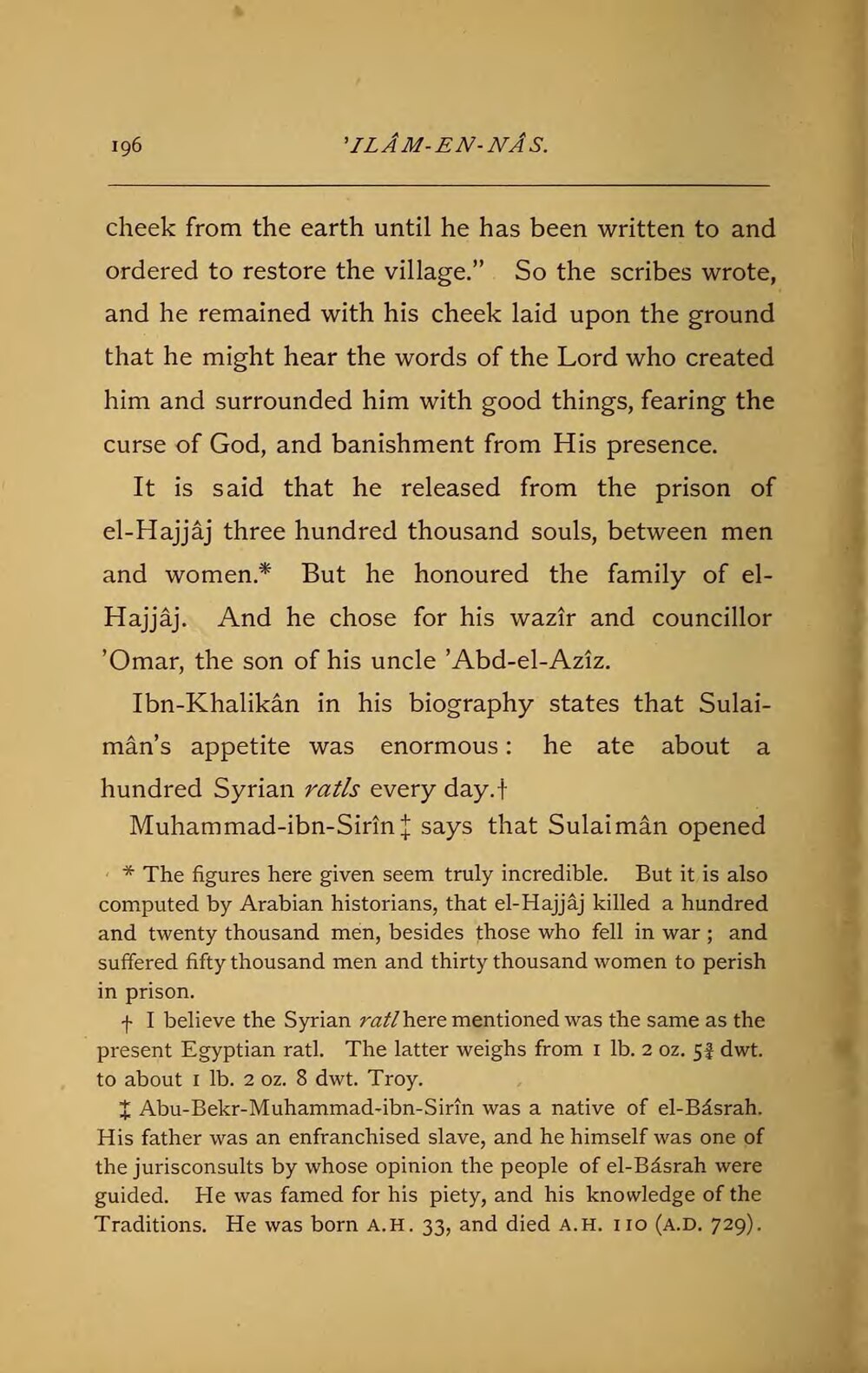196
ʾILÂM-EN-NÂS.
cheek from the earth until he has been written to and ordered to restore the village." So the scribes wrote, and he remained with his cheek laid upon the ground that he might hear the words of the Lord who created him and surrounded him with good things, fearing the curse of God, and banishment from His presence.
It is said that he released from the prison of el-Hajjâj three hundred thousand souls, between men and women.[1] But he honoured the family of el-Hajjâj. And he chose for his wazîr and councillor ʾOmar, the son of his uncle ʾAbd-el-Azîz.
Ibn-Khalikân in his biography states that Sulaimân's appetite was enormous: he ate about a hundred Syrian ratls every day.[2]
Muhammad-ibn-Sirîn[3] says that Sulaimân opened
- ↑ The figures here given seem truly incredible. But it is also computed by Arabian historians, that el-Hajjâj killed a hundred and twenty thousand men, besides those who fell in war; and suffered fifty thousand men and thirty thousand women to perish in prison.
- ↑ I believe the Syrian ratl here mentioned was the same as the present Egyptian ratl. The latter weighs from 1 lb. 2 oz. 5¾ dwt. to about 1 lb. 2 oz. 8 dwt. Troy.
- ↑ Abu-Bekr-Muhammad-ibn-Sirîn was a native of el-Básrah. His father was an enfranchised slave, and he himself was one of the jurisconsults by whose opinion the people of el-Básrah were guided. He was famed for his piety, and his knowledge of the Traditions. He was born A.H. 33, and died A.H. 110 (A.D. 729).
